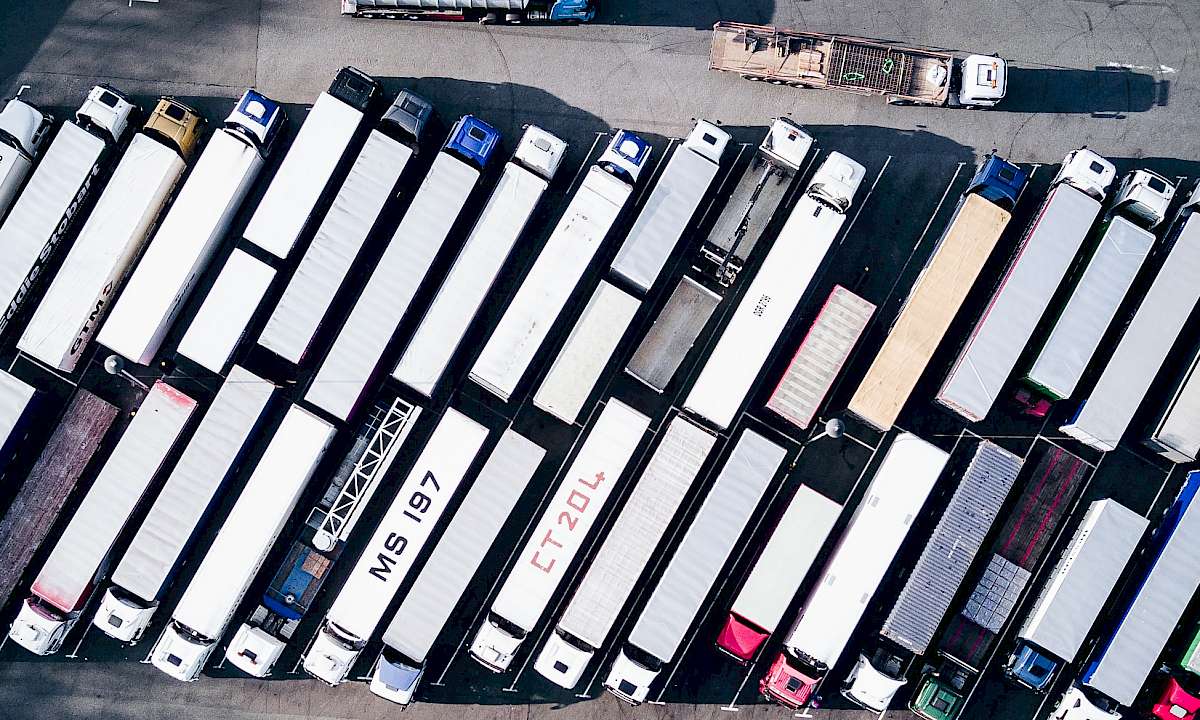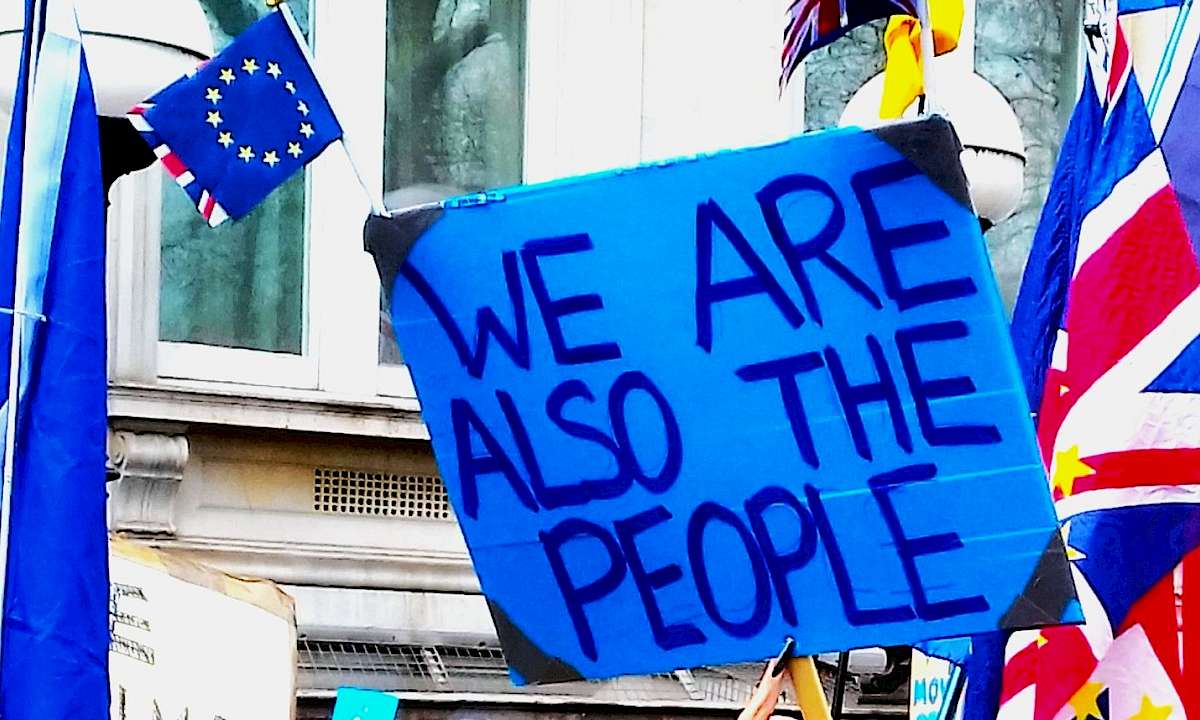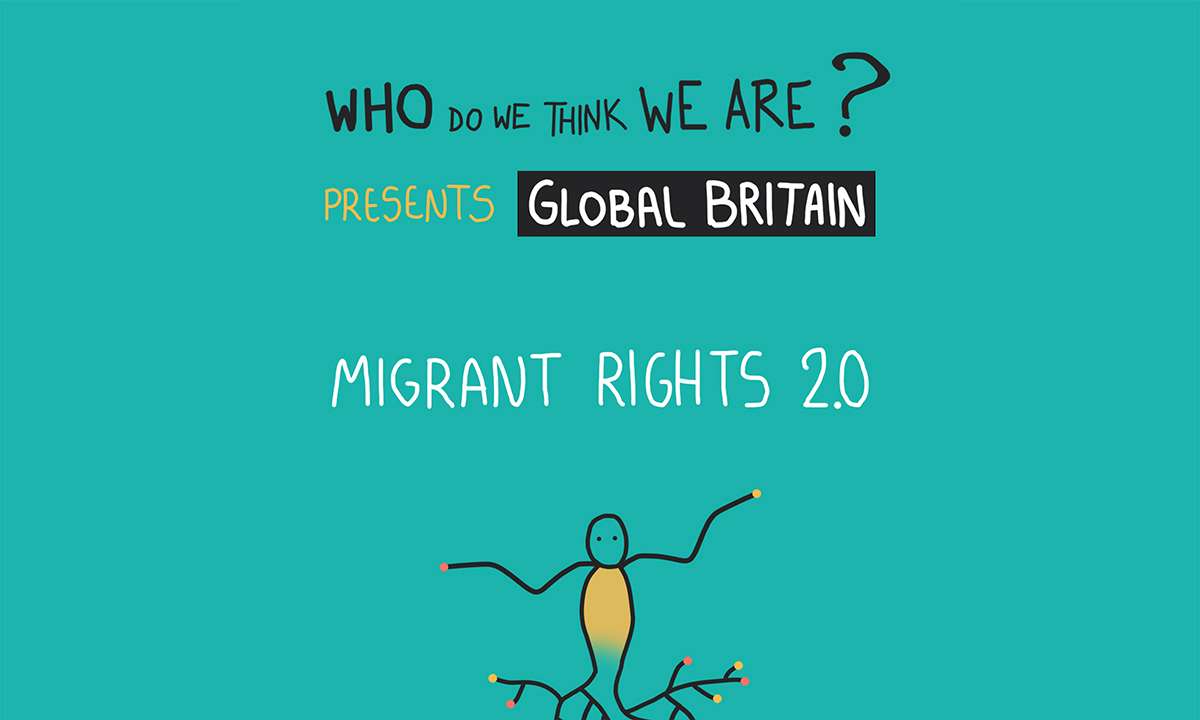
This blogpost was previously published on The Sociological Review website, launching their February 2021 theme 'Migration'.
Three weeks into 2021 and the end of the Brexit transition period, and not a day has passed where the borders haven’t made their presence felt in the newscycle. The coincidence of COVID and Brexit has produced a perfect storm, as public health concerns and necessary containment measures have become entangled with the emerging post-Brexit geopolitics, and often weaponised to score political points.
Closing the borders
A few days before Christmas 2020, the so-called ‘British’ variant of COVID-19 took the world by storm. Donald Trump’s ‘Chinese virus’ gained a new passport. Once again, the virus is nationalised and with it the ‘national’ scale is reaffirmed as the one where both the problem and its solutions were to be sought and found. Indeed, around the world the response to the pandemic has been largely framed in the terms of a ‘national effort’, particularly among the most affluent ones. However, this doesn’t go uncontested. So, while the World Health Organisation (WHO) has pushed for a more ‘global’ and connected response, within states, local and regional governments have used the opportunities provided by the pandemic to wrest more power, independence or political capital (see for example, Italy and Germany as cases of tensions between regional and national authorities). In the UK context, Nicola Sturgeon has used the UK government’s poor response to the pandemic to successfully rally pro-independence sentiments.
At the same time, the race was on to reach a post-Brexit trade deal between the UK and EU. Recast in international media as ‘plague island’ in consequence of the rapid spread through the population of the new variant, the UK found itself prematurely cut off from Europe. As France shut its borders to Britain, queues of stationary lorries snaked their way up the M20 as all Europe-bound traffic was turned away from the Channel Tunnel and Ferry terminals. Kent was remade as a lorry park as thousands of drivers were forced to spend Christmas awaiting the rapid COVID testing required before France would allow them to cross the borders.
Making ‘Global Britain’ through the pandemic
The events of the last month have brought the previously invisible border between the UK and the EU sharply into view for EU and British citizens alike. It materialised in front of our eyes, seemingly conjured up by the uncontrollable forces of the pandemic. But despite the impermeability of the borders deemed necessary in these times, it is important to remember that there is nothing natural or intrinsic about these—or, indeed, any other—borders. They are brought into being, actively (re)constructed. This is a process which continuously reproduces the boundaries of the imagined community who fall within their embrace. In other words, borders make particular publics while excluding others. Indeed, in the context of the pandemic, the borders and the boundaries have sharpened. Public health measures rest upon often unquestioned understandings about whose interests should be at the heart of government action. In this way, it becomes clear that they are caught up in and reinvigorate longer-standing political projects of belonging, governments adopting classificatory logics that distinguish between the ‘deserving’ and ‘undeserving’, the citizen and migrant, to determine who should have priority in their COVID response. This can be seen, for example, in the exclusion of Palestinians in Occupied Territories from Israel’s COVID vaccination campaign.
As such, it is necessary to relocate the UK’s pandemic response within the ongoing context of its changing position in the world in consequence of Brexit, and in particular its changing relationship with the EU. With Brexit pending, the UK rushed to approve the Pfizer/Biontech vaccine before its EU partners, secured supply of the vaccine and rolled out its nationwide vaccination programme in advance of the EU member states. The message here is clear. The coordinated EU-level response to the authorisation, procurement and distribution of the vaccination within EU has slowed this process within in its member states. In contrast, ‘Global Britain’ newly independent from the EU and throwing off its bureaucracy, has been able to fast-track this process, at least in the arena of vaccination seeming to tackle the pandemic head on. Never mind that the urgent approval of vaccines by individual EU member states was also possible within the EU framework. This is not news that makes the British headlines.
Rebordering Britain through Brexit
Within hours of the New Year, with the UK on the brink of a third national lockdown, some British citizens arriving at the borders of EU member states found themselves turned away. Even within the context of the pandemic, the mobility of EU citizens between member states remained largely unrestricted or treated along the same line of local and regional restrictions. Nevertheless, a various points and to varying degrees, over the course of 2020 mobility to and from with many non-EU countries had been restricted. As the clock rang in 2021 in Brussels, British citizens lost their EU citizenship. Newly third country nationals, they found themselves judged as no longer exempt from COVID-related restrictions on non-essential travel from outside the European Union. In this respect, the context of COVID makes more apparent the significance of Brexit for individual British citizens. Moreover, in repositioning the UK in the world, Brexit also redefines the borders of the political community for the over 3.8 million EU nationals already living in the UK and for the 1.2 million British citizens who live in the EU.
We have been here before. The novelty of Brexit and the particular challenges it presents should not conceal the fact that the exercise of redrawing borders and with it, the membership of the imagined community is nothing new for the United Kingdom. The prolonged process of Britain’s decolonisation—its geo-political transformation and institutional reconfiguration from empire to nation-state—was similarly accompanied by such an exercise. The legacies of this are embedded in its complex, fluid and even elusive institutional architecture, migration and nationality legislation the vehicles through which a racialised politics of belonging were institutionalised. Similar to Brexit, decolonisation plunged many in the UK and abroad into a limbo-like legal status which would go on to have devastating consequences. The long tail of this transformation has been revealed in the last few years, most notably by the Windrush deportation scandal.
The legal transformation that Brexit brings relocates the rights secured through EU citizenship—which all too often have been considered as a case apart from broader issues of migrants’ rights—into the frame of migration and citizenship regimes across Europe. Looking towards migration policy and governance reveals how Brexit and the transformation of citizens’ rights are caught up in dynamic Europe’s migration governance regimes that are reshaping boundaries of belonging. Through such processes citizens and third country nationals alike are finding themselves reclassified and repositioned in societal hierarchies of membership, with their claims to belonging and access to rights scrutinised.
Researching migration and citizenship after Brexit and COVID
What does this rescaling and the entanglements of Brexit and COVID mean for scholarship approaching the questions of migration, citizenship and belonging in the wake of Brexit? How do we develop our understandings of migration and citizenship to account for this context while also not forgetting the histories that brought us here?
It is clear that Brexit and COVID will have impacts on migration and mobility to and from the UK. Migration patterns, routes and settlement strategies will change in response to Britain’s shifting position in the world and the immigration reform brought about by the Immigration and Social Security Coordination Act 2020. We already know that since the Brexit referendum, not only has the number of EU citizens who move to the UK declined, but a growing number of EU citizens formerly resident in the UK have left the country, leaving net migration from the EU at a ten-year low. British emigration and settlement patterns in the EU and internationally have also being affected by this geopolitical reordering. Meanwhile, immigration flows to the UK from outside the EU have grown.
There is a danger that Brexit and COVID might be considered the shiny object that, like magpies, academics working in the area of migration and citizenship are drawn to. Certainly, it will be necessary to document and analyse what these mean for Britain’s migration story. But this should not come at the expense of neglecting a landscape of migration and citizenship that came before Brexit. In a context where some politicians and pundits have already relegated the UK’s membership of the EU to the past, more than ever, we need to be alert to the problems of methodological nationalism in our research.
As we see it, a research agenda concerned with migration and citizenship after Brexit and COVID should build on a foundation that recognises the connected sociologies of migration and citizenship that stretch from colonialism to Brexit. It needs to remain attuned to UK’s shifting position on the world stage. It should challenge exclusionary understandings of who is a citizen and who is a migrant in Britain and beyond; and it should remember the integral role that emigration has played in Britain’s migration story, past and present and the legacy of EU membership on British society even long after Brexit.
To cite this item:
Benson, M and Sigona, N (2021) Brexit on ‘Plague Island’: fortifying the UK’s borders in times of crisis, The Sociological Review Blog, 2 February 2021. [https://www.thesociologicalreview.com/brexit-on-plague-island-fortifying-the-uks-borders-in-times-of-crisis/]







